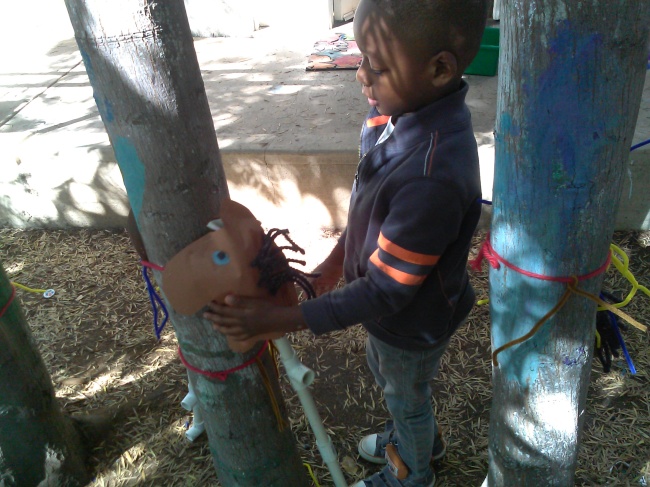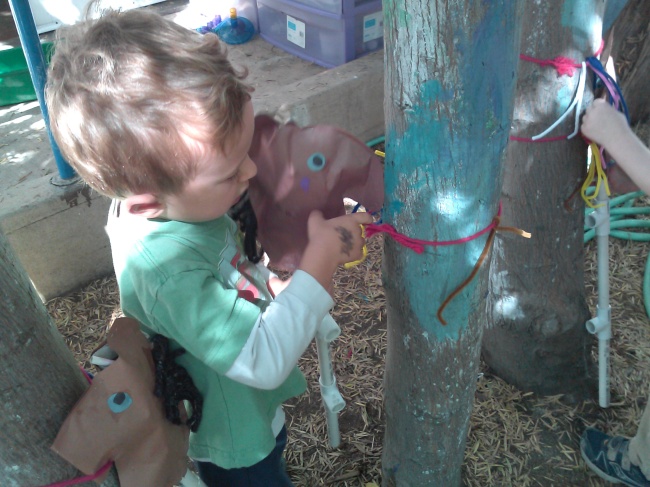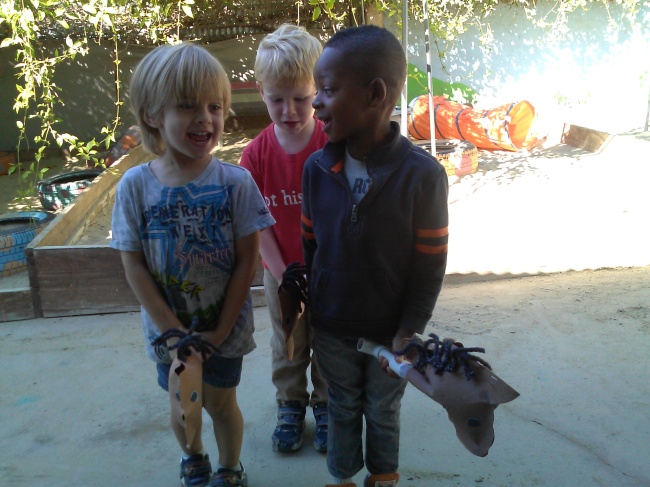Medieval residents did not enjoy the paved parking lots that we take for granted today. Horses were the preferred mode of transportation. As travelers shopped, visited friends, and went about their days, they would hitch their horses to posts. These were often adorned with varying colors to indicate class and wealth. The first component of this activity included decorating our “posts” with colorful pipe cleaners and yarn. Each child selected a variety of pipe cleaners that they were to “attach” to their preferred post. This fostered fine motor skills as it involved your little one twisting and fastening the pipe cleaner to make it adhere to the tree. The second component involved dramatic play. Here, your little one rode around on their own horses, exploring their medieval villages and parking their horses when they needed to rest. Dramatic play provides a host of social skills for your little one to practice. When they engage in pretend play, they exercise their negotiation and cooperation skills. They are encouraged to share and dictate roles. As they relate to one another, they foster their problem solving abilities and impulse control. Lastly, they learn to appreciate each actor’s role in the play. These all contribute to building important life skills.
- Comment
- Reblog
-
Subscribe
Subscribed
Already have a WordPress.com account? Log in now.










